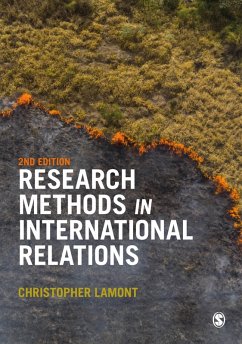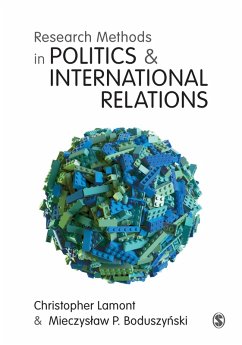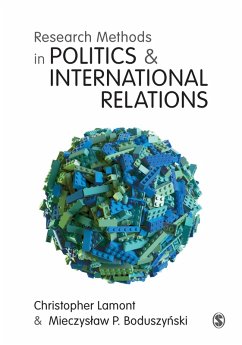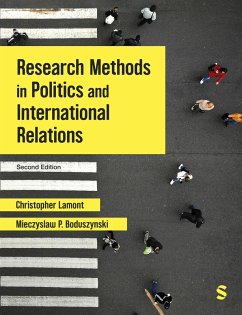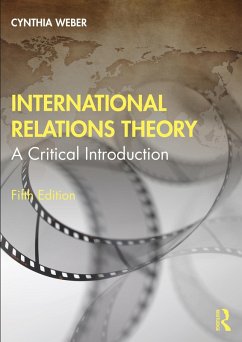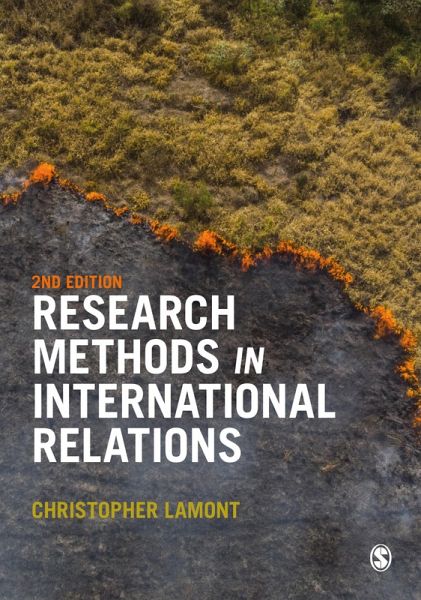
Research Methods in International Relations (eBook, ePUB)
Versandkostenfrei!
Sofort per Download lieferbar
30,95 €
inkl. MwSt.
Weitere Ausgaben:

PAYBACK Punkte
15 °P sammeln!
The only guide to conducting research in International Relations. Covering the full breadth of methods in IR with unrivalled clarity, this best-selling textbook takes you through the entire process of doing research, from honing your question to writing up the dissertation. The engaging and jargon-free style demystifies the process of doing research, whilst helping you develop a comprehensive understanding of the strengths and limitations of different methods and methodologies. This second edition comes with new chapters on conducting interviews and discourse analysis, as well as expanded cove...
The only guide to conducting research in International Relations. Covering the full breadth of methods in IR with unrivalled clarity, this best-selling textbook takes you through the entire process of doing research, from honing your question to writing up the dissertation. The engaging and jargon-free style demystifies the process of doing research, whilst helping you develop a comprehensive understanding of the strengths and limitations of different methods and methodologies.
This second edition comes with new chapters on conducting interviews and discourse analysis, as well as expanded coverage of qualitative and quantitative methods. Packed with examples, it explores the breadth of IR research today, from the long-lasting impact of colonialism to migration policy; climate change negotiations to international aid. Covering the most cutting-edge methodological developments, including critical realism, feminist, and postcolonial approaches, it helps you understand and apply research methods in world politics.
This practical introduction is essential reading for anyone setting out on their International Relations research project for the first time, at undergraduate and postgraduate levels.
Christopher Lamont is Assistant Dean of E-Track Programs and Associate Professor of International Relations at Tokyo International University, Japan.
This second edition comes with new chapters on conducting interviews and discourse analysis, as well as expanded coverage of qualitative and quantitative methods. Packed with examples, it explores the breadth of IR research today, from the long-lasting impact of colonialism to migration policy; climate change negotiations to international aid. Covering the most cutting-edge methodological developments, including critical realism, feminist, and postcolonial approaches, it helps you understand and apply research methods in world politics.
This practical introduction is essential reading for anyone setting out on their International Relations research project for the first time, at undergraduate and postgraduate levels.
Christopher Lamont is Assistant Dean of E-Track Programs and Associate Professor of International Relations at Tokyo International University, Japan.
Dieser Download kann aus rechtlichen Gründen nur mit Rechnungsadresse in A, D ausgeliefert werden.




